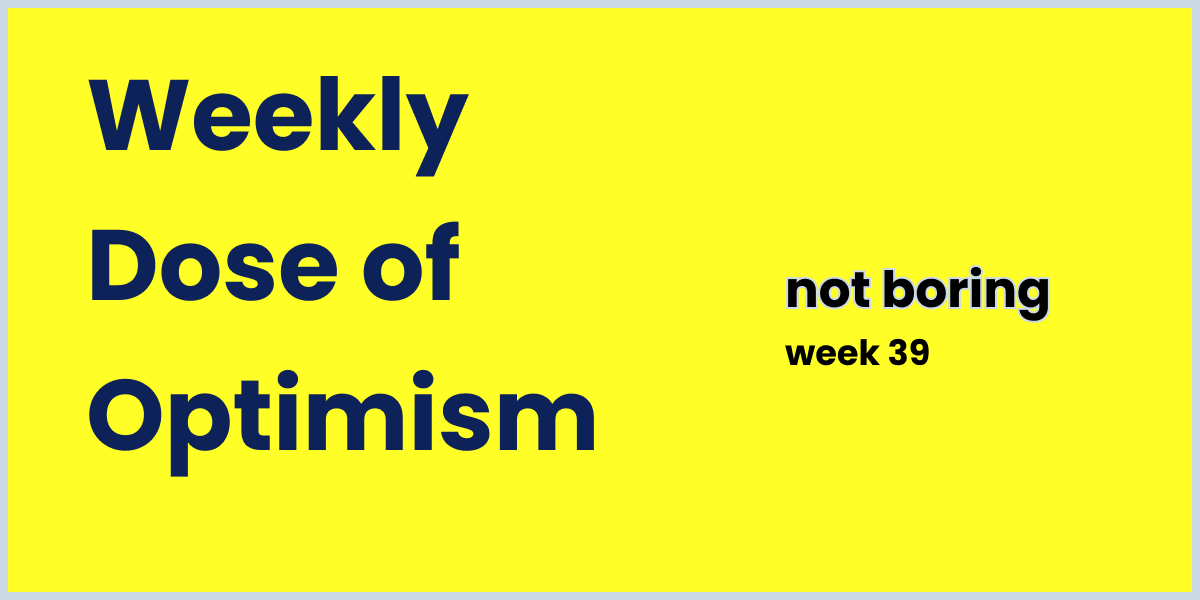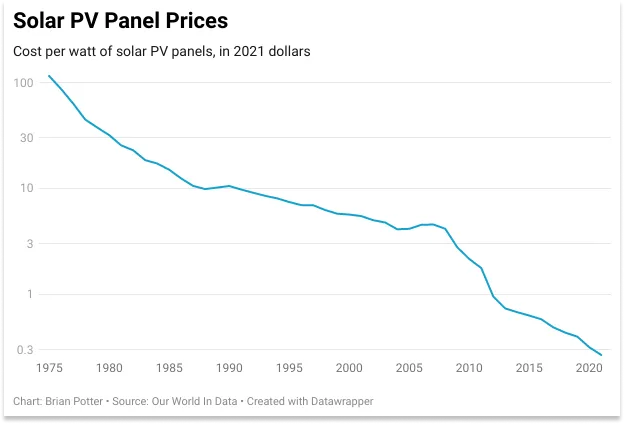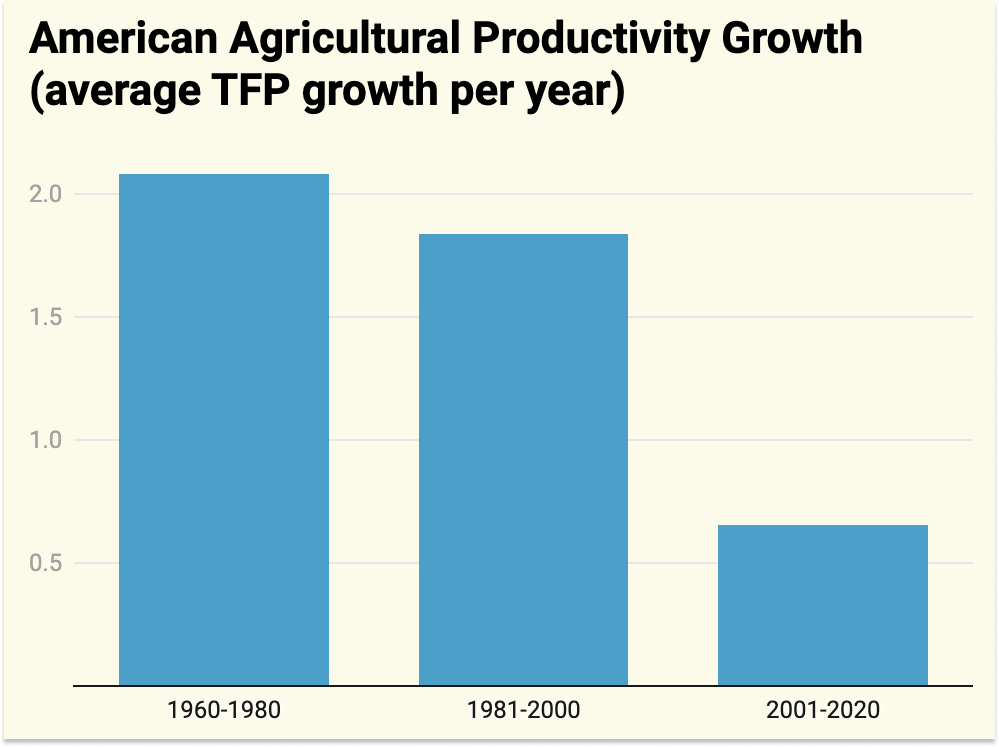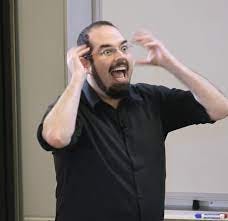Not Boring by Packy McCormick - Weekly Dose of Optimism #39
Weekly Dose of Optimism #39Starship, How Solar Got Cheap, AgARDA, Against Safetyism, Dr. Peter AttiaHi friends 👋, Happy Friday and welcome back to our 39th Weekly Dose of Optimism. We got exploding rockets, a case for AgARDA & a case against safetyism, and longevity learnings. At bit all over the place, but in a good way. If you like it, subscribe! We’re tantalizingly close to 200k: Let’s get to it. The Weekly Dose is brought to you by... Axios Pro Listen, it's tough at there right now: layoffs, multiple compression, interest rate uncertainty, and even sudden banking crises — there's a lot going on and the Axios Pro newsroom is here to provide clarity. Axios' industry-leading journalists — like Dan Primack — help contextualize how this downturn is impacting dealmaking in your industry. Why it matters: Optimism doesn’t mean putting your head in the sand. Get data. Not Boring readers can download Axios Pro's latest industry report for free to learn what the current economic cooldown means for your bottom line, and how to plan for a possible recession. Go deeper: The Axios Pro newsroom delivers aggregated data and analysis from the biggest players in VC, PE and M&A, plus key industry trends and takeaways to inform every critical decision you’ll make this year. If your work touches fintech, health tech, climate, media or retail (which if you're reading this, it likely does) this might be the most important report you read all year. (1) Starship Flight Test 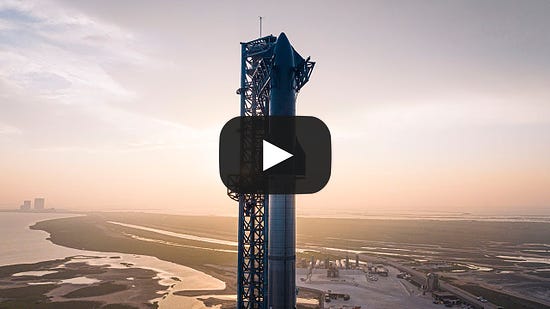 On 4/20 (of course, nice), SpaceX achieved its primary objective of getting Starship off the ground. Starship, which will eventually attempt to take humans to the moon and Mars, is the largest and most powerful rocket ever constructed, and is now the largest and most powerful rocket ever to launch. Even though the rocket exploded minutes after launch, it was a big accomplishment to just get this bigboi in the air. We’ve been critical of Elon’s work at Twitter. It’s easy to forget that he’s working on civilization-changing, big engineering problems like Starship when he’s being a poopoohead on his rotting website. But props where props are due. Duality of man and all that. While Elon’s biggest critics and those who generally dislike cool shit are focusing on the fact that the rocket blew up, launching and learning on a budget that’s minuscule compared to NASA’s is a big accomplishment. SpaceX continues to make the world stop and stare in wonder, and we need more of that. (2) How did solar power get cheap? Part I & Part II Brian Potter in Construction Pysics
We love us a good learning curve here at Not Boring. From Moore’s Law to DNA sequencing to solar PV prices, these curves show costs declining and performance improving exponentially over time, as if by magic 🪄 But the most magical thing about learning curves is that they’re not magical at all. They’re the result of millions of individual, corporate, and national efforts over decades that somehow shake out into these relatively smooth, beautiful curves. In this two-part piece, Brian Potter, the author of one of our favorite blogs, Construction Physics, which breaks down why things are built the way they are, explains everything that’s gone into shrinking the cost of solar PV electricity by 15,000x over the past seven decades. From the earliest exploration of the photovoltaic effect in 1839 by the dad of the guy who discovered radioactivity to the invention of the modern PV cell at (where else?) Bell Labs in 1954 to the first big solar PV purchases by (who else?) US and Russian aerospace and defense agencies in 1958 to the international competition across the US, Japan, Germany, and China to produce the most and cheapest cells, Potter’s piece is a comprehensive look at how one of the world’s most important curves came to be. We celebrate humanity’s big, flashy achievements here, but sometimes, it’s the composition of small improvements that power the greatest progress. Adin Richards for The Institute for Progress
The U.S. was once the leader in farming innovation, but that position has weakened over time as we’ve transformed into a services economy. Richards makes the case that the government needs to fund and support the new Agricultural Advanced Research Development Agency (AgARDA) it created in the 2018 Farm Bill and details the top three initiatives the agency should focus on. Ultimately, it comes down to protecting a U.S. leadership position in food and monitoring threats against our food supply. The ARPA/ARDA (Advanced Research Project/Development Agencies) model is fascinating and effective. You likely know DARPA (Defense Advance Research Projects Agency), which was deeply involved in the development of the Internet, GPS, and drones. Because of DARPA’s effectiveness in funding moonshot tech and shepherding it to market via DOD contracts, the government has begun experimenting with more ARPA/ARDAs recently, like ARPA-E (2009) for energy and ARPA-H (2022) for biotech and health. While results have been mixed, these programs have the potential to combine the resources of the government with the flexibility of venture-like funding models. As with solar and so many of our biggest technological achievements, we can tackle bigger challenges when government, academia, and industry work together effectively, and we hope AgARDA can have a DARPA-like impact on food. Byrne Hobart and Tobias Huber for Pirate Wires
Call it safetyism. Risk aversion. Doomerism. Call it whatever you want. (We’ll call it safetyism for consistency’s sake). But freaking out about the future, and letting that freakout prevent advancement has become an increasingly popular stance. Pessimists sound smart, optimists make money. Safetyists sound smart, optimists make progress. Friend of the newsletter, Byrne Hobart, and Tobias Huber explain why safetyism is both illogical and dangerous. These two quotes capture the crux of the argument:
We worry about the potential risks of nuclear energy, we get the reality of dirtier and more deadly fossil fuels. Often, the downsides created by safetyism aren’t as clear as the nuclear example: “by mitigating or suppressing visible risks, safetyism is often creating invisible or hidden risks that are far more consequential or impactful than the risks it attempts to mitigate.” While we worry about AI killing us all, for example, millions will die of diseases that AI could help detect or even cure. This isn’t a call to scream YOLO as we indiscriminately create new technologies with zero regards for the consequences, but it’s an important reminder that trying to play it safe is often the riskiest move of all. (5) Peter Attia - The Portfolio to Live Longer
Longevity and optimism are intertwined. Longevity folks want to live longer because they believe life is worth living for as long and as well as you can. Your average optimist probably has a pretty similar perspective, even if they are not singularly focused on the length and quality of life. To care about living well is to be an optimist. So if you’re reading this newsletter, you’re likely interested in longevity (or healthspan) — and Dr. Peter Attia is the world’s leading (or most popular) expert on the topic. He recently released his long-awaited book “Outlive: The Science and Art of Longevity” and went on Patrick O’Shaughness’y podcast to discuss it at length (see what I did there?). According to Attia, there are five areas over which we have agency that can meaningful impact healthspan: nutrition, exercise, sleep, pharmacology (drugs, supplements, etc), and tools around mental health. But these are not all created equal: exercise has a disproportionate impact on longevity and healthspan. Speaking of exercise and supplements… Bonus: Dan on The Danny Miranda Podcast: The Creatine King Packy here, sneaking this in while Dan’s not looking. Dan did his biggest podcast interview yet, talking about creating Create, working on Not Boring, and family. I’m very grateful that I get to work with my brother and proud of everything he’s doing (HUGE day yesterday despite being attacked by an unscrupulous competitor), and this is as good an overview of Dan’s world as there is. Did you enjoy reading this Weekly Dose of Optimism? (Powered by Sprig) That’s all for this week. We’ll be back in your inbox on Monday. Thanks for reading, Dan |
Older messages
Weekly Dose of Optimism #38
Wednesday, April 19, 2023
EVs, Battery Recycling, Child Mortality Rates, The State of Crypto, SimsGPT, The Problem of Abundance
Sign in to Not Boring by Packy McCormick
Wednesday, April 19, 2023
Here's a link to sign in to Not Boring by Packy McCormick. This link can only be used once and expires after 24 hours. If expired, please try logging in again here. Sign in now © 2023 Packy
Intelligence Superabundance
Wednesday, April 19, 2023
Induced Demand, Jevons Paradox, Jeff Bezos, AI, and Our Jobs
Crypto (Could) Fixes This
Monday, April 10, 2023
Elon, Substack, and Crypto as Insurance
Weekly Dose of Optimism #37
Friday, April 7, 2023
Quantum Computers, Checks & Balances, AI Investment, Early Warning Pandemic Systems, Rex Woodbury on Optimism
You Might Also Like
🔮 $320B investments by Meta, Amazon, & Google!
Friday, February 14, 2025
🧠 AI is exploding already!
✍🏼 Why founders are using Playbookz
Friday, February 14, 2025
Busy founders are using Playbookz build ultra profitable personal brands
Is AI going to help or hurt your SEO?
Friday, February 14, 2025
Everyone is talking about how AI is changing SEO, but what you should be asking is how you can change your SEO game with AI. Join me and my team on Tuesday, February 18, for a live webinar where we
Our marketing playbook revealed
Friday, February 14, 2025
Today's Guide to the Marketing Jungle from Social Media Examiner... Presented by social-media-marketing-world-logo It's National Cribbage Day, Reader... Don't get skunked! In today's
Connect one-on-one with programmatic marketing leaders
Friday, February 14, 2025
Enhanced networking at Digiday events
Outsmart Your SaaS Competitors with These SEO Strategies 🚀
Friday, February 14, 2025
SEO Tip #76
Temu and Shein's Dominance Is Over [Roundup]
Friday, February 14, 2025
Hey Reader, Is the removal of the de minimis threshold a win for e-commerce sellers? With Chinese marketplaces like Shein and Temu taking advantage of this threshold, does the removal mean consumers
"Agencies are dying."
Friday, February 14, 2025
What this means for your agency and how to navigate the shift ͏ ͏ ͏ ͏ ͏ ͏ ͏ ͏ ͏ ͏ ͏ ͏ ͏ ͏ ͏ ͏ ͏ ͏ ͏ ͏ ͏ ͏ ͏ ͏ ͏ ͏ ͏ ͏ ͏ ͏ ͏ ͏ ͏ ͏ ͏ ͏ ͏ ͏ ͏ ͏ ͏ ͏ ͏ ͏ ͏ ͏
Is GEO replacing SEO?
Friday, February 14, 2025
Generative Engine Optimization (GEO) is here, and Search Engine Optimization (SEO) is under threat. But what is GEO? What does it involve? And what is in store for businesses that rely on SEO to drive
🌁#87: Why DeepResearch Should Be Your New Hire
Friday, February 14, 2025
– this new agent from OpenAI is mind blowing and – I can't believe I say that – worth $200/month
